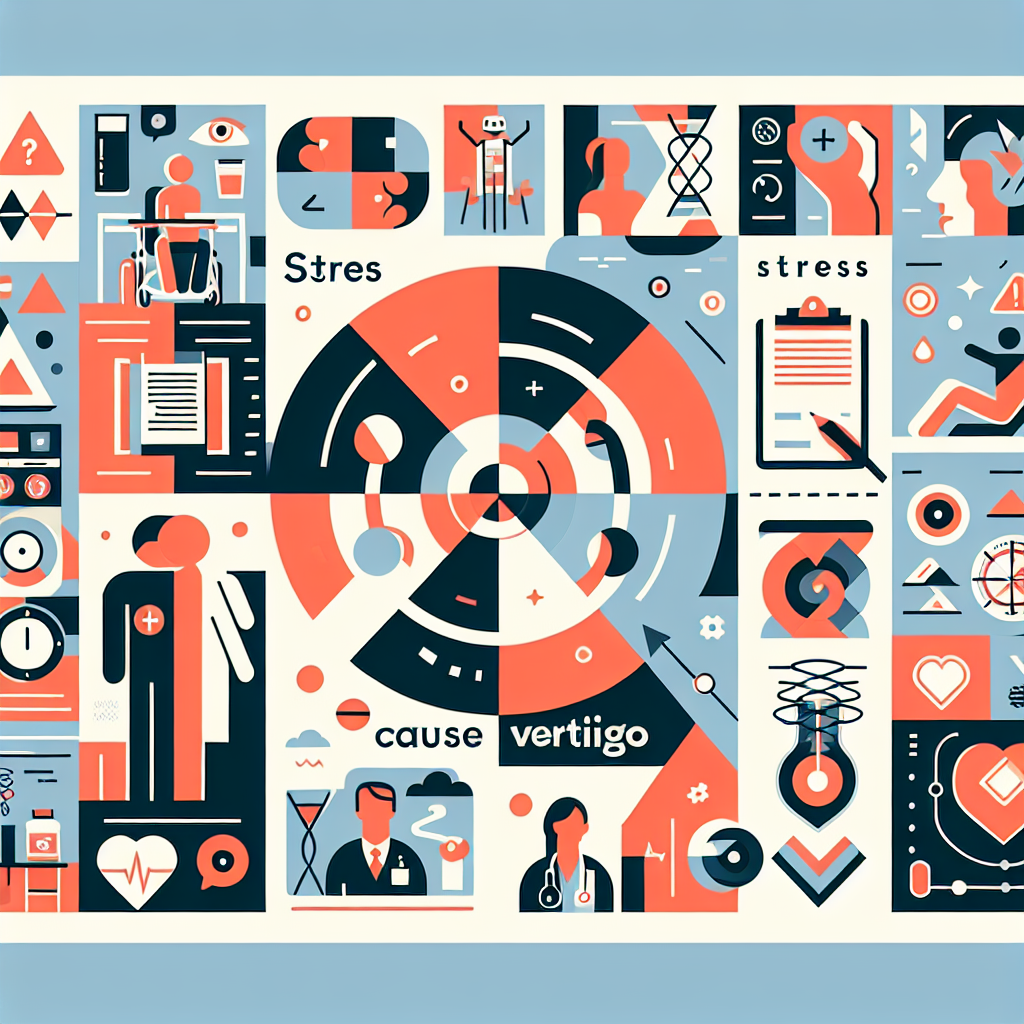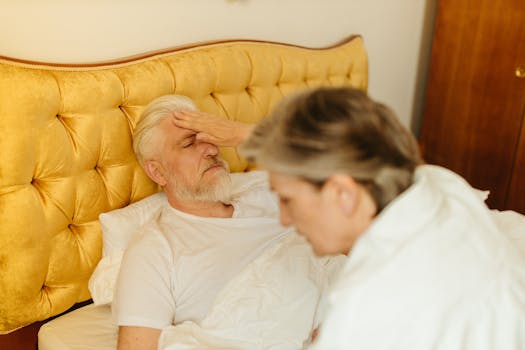Many people ask, can stress cause vertigo — and the short answer is: yes, stress can contribute to dizziness, imbalance, or make existing vestibular conditions feel worse. Stress doesn’t always cause true vertigo (the sensation that the world is spinning), but it can trigger symptoms that feel very similar, and it commonly amplifies how severe those symptoms feel. This article explains possible mechanisms, how to distinguish stress-related dizziness from other causes, and practical steps to reduce episodes.
Can stress trigger vertigo symptoms?
Vertigo itself is usually linked to the inner ear or brain pathways that process balance. However, stress influences the nervous system, breathing patterns, and blood flow — all of which can produce lightheadedness, sensation of movement, or unsteadiness. Anxiety-driven hyperventilation changes carbon dioxide levels and can cause dizziness, while prolonged stress can increase muscle tension in the neck and shoulders, which sometimes affects balance. For a concise clinical overview of vertigo and its common causes, see this resource from the National Institute on Deafness and Other Communication Disorders: what is vertigo?
There are a few ways stress may interact with vertigo and vestibular disorders:
- Triggering or amplifying symptoms: In people with underlying vestibular problems (like benign paroxysmal positional vertigo or Menière’s disease), stress and anxiety can trigger flare-ups or make episodes feel more intense.
- Physiological changes: Stress activates the sympathetic nervous system (fight-or-flight), which can alter heart rate and blood pressure and lead to lightheadedness or loss of balance.
- Behavioral contributors: Poor sleep, caffeine, alcohol, dehydration, and irregular eating — common during high stress — can worsen dizziness.
- Perception and focus: Anxiety heightens awareness of bodily sensations so mild imbalance that would otherwise go unnoticed becomes distressing and more disruptive.
How clinicians tell the difference
Diagnosing the root cause involves a careful history and physical exam. Doctors ask about the quality of the dizziness (spinning vs. lightheaded), timing, triggers (like head movements), hearing changes, and accompanying neurological symptoms. Quick onset, severe spinning with hearing loss, or focal neurologic signs (weakness, numbness, slurred speech) merit urgent evaluation. If symptoms fluctuate with stress or anxiety and other tests are normal, clinicians may conclude stress-related dizziness or a mixed picture.
When stress plays a role, addressing both the vestibular system and the stress response often produces the best results.
Practical steps to reduce stress-related dizziness
- Breathing and grounding: Slow, diaphragmatic breathing reduces hyperventilation and calms the nervous system. Grounding exercises (focus on the senses) can interrupt panic cycles that worsen dizziness.
- Vestibular exercises: Brandt-Daroff or vestibular rehabilitation exercises taught by a physical therapist help retrain balance systems when appropriate.
- Sleep, hydration, and diet: Regular sleep, limiting caffeine and alcohol, and staying hydrated reduce triggers.
- Stress management: Mindfulness, cognitive-behavioral strategies, yoga, and progressive muscle relaxation can lower both baseline stress and acute anxiety spikes.
- Limit screens and overstimulation: Reducing constant screen exposure and creating predictable routines may help lower overall anxiety — our digital detox guide has practical steps to reclaim focus and reduce anxiety.
- When to seek care: See a physician if episodes are sudden, severe, accompanied by hearing loss, double vision, numbness, or trouble speaking — these require prompt assessment.
Combining symptom-targeted strategies (vestibular exercises, hydration) with stress-reduction approaches (therapy, relaxation techniques) often reduces both the frequency and severity of episodes. For many people, addressing lifestyle contributors and learning coping tools makes vertigo-like sensations more manageable even when an underlying vestibular condition remains.
Finally, if you’re uncertain about the source of dizziness, it’s reasonable to start with a primary care visit; they can perform initial testing and refer you to neurology or an ear, nose, and throat specialist if needed.
- Takeaways:
- Stress can provoke dizziness and worsen existing vestibular conditions, though it’s not always the sole cause of true vertigo.
- Breathing techniques, sleep hygiene, hydration, and vestibular exercises can reduce episodes.
- When dizziness is sudden, severe, or accompanied by neurological signs, seek immediate medical attention.
Can anxiety alone cause vertigo?
Anxiety commonly causes lightheadedness, unsteadiness, and a sense of movement, but “true” vertigo usually reflects inner ear or brain pathway dysfunction. Anxiety can mimic vertigo or amplify symptoms in people with an underlying vestibular disorder.
What should I do during an episode?
If you feel dizzy, sit or lie down immediately to avoid falling. Practice slow, controlled breathing, hydrate, and avoid sudden head movements. If symptoms are new, severe, or accompanied by other concerning signs, get medical evaluation.






